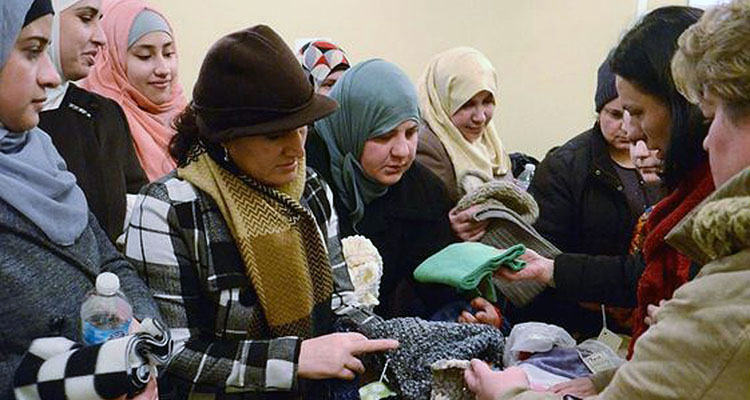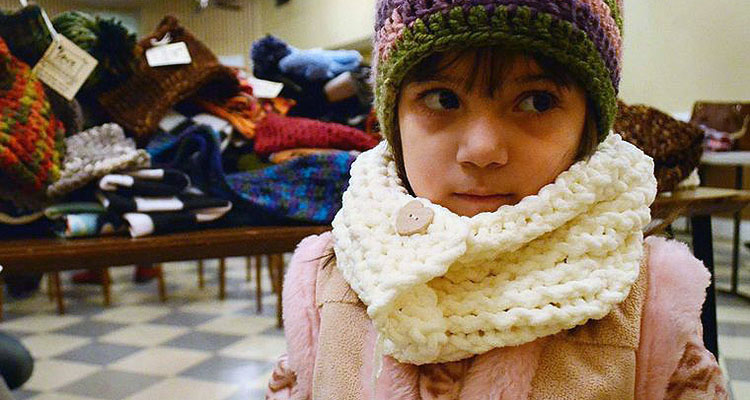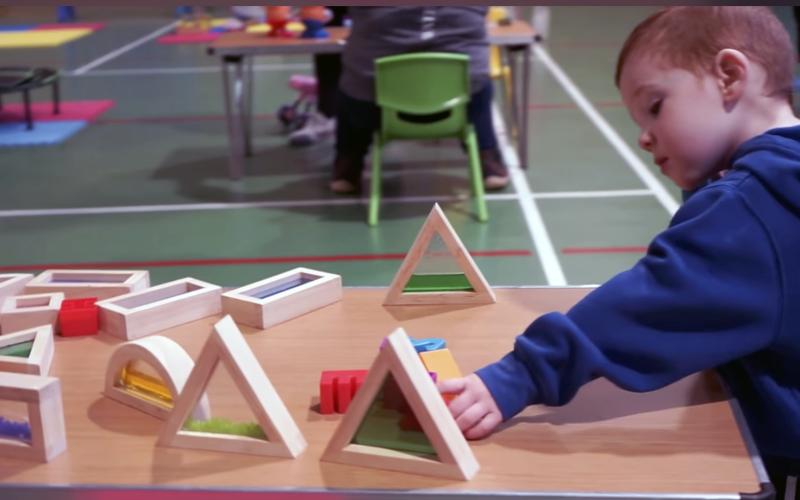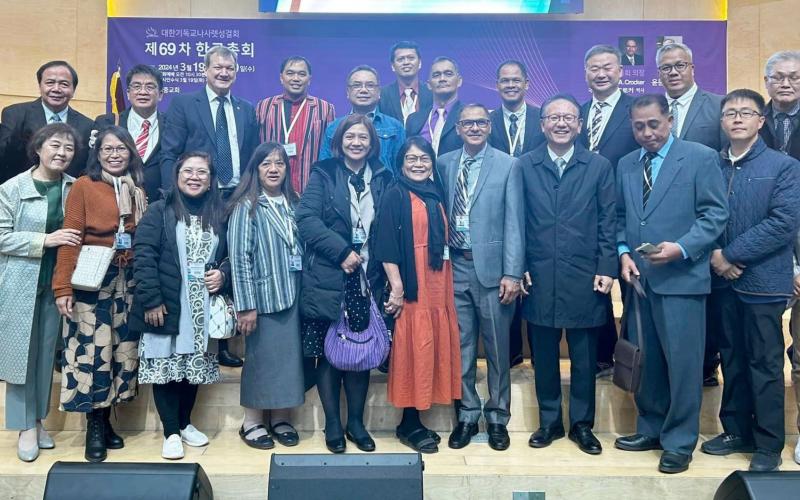
Illinois church members knit hats, scarves for Syrian refugees

They'll probably never meet. Even if they could, they don't speak the same language, eat the same food, or pray to the same God, but for a couple dozen church members from the Manteno Church of the Nazarene and about 60 Syrian refugees in a north Chicago neighborhood, that doesn't really matter.
About 7 p.m. on Friday, Fadia Mabus, her 5-year-old son, Sam, of Bourbonnais, and friend Emily Linton of Bradley carried trash bags filled with hand-knitted scarves and hats for refugees who are living through their first Midwest winter. Prayers still were echoing as they walked up through the halls of the Muslim Community Center in Chicago into a room easily 70 degrees; everyone was wearing winter coats.
Those hats and scarves were made, and prayed over, by members of the Manteno Nazarene Church and other local community groups.
"The Syria climate, it's different," said Mabus, who is from Latakia, Syria, and moved to Bourbonnais in 2010. "I remember when I arrive, how it is freezing."
That was how the project was born. Just before Christmas, Sharyl Whittington, who attends the Nazarene church with Mabus, felt a burden watching the coverage of the Syrian refugee crisis on the news.
"I thought, what can I, one person, do to help these people?" Whittington said. "I don't know anyone; how can I help?"
Then she met Mabus, and they decided to take action. Whittington taught Mabus to knit, who in turn began to teach others. They got the church involved. One woman designed the tags. The teen group sorted and prayed over the garments. Mabus' MOPS group began crafting. Friends out of state even mailed in items.
The result: In just less than two months 120 scarves and hats were made in all sizes.
"I wanted them to know that they are loved and cared for and prayed for," Whittington said. "I know not everyone sees them in that light.
"It was important for them to know that these weren't just things put out there. We specifically prayed for the people and the situation they are in and their families," she added as her voice broke.
The church members call the project "Love in every stitch." More than the tangible way to help, it was about sharing hope and love with families who have lost everything in a war they didn't start.
"They lost everything — so absolutely they understand what it is to pray," Mabus said. "I imagine them happy, for them to be safe who wear it."
And she probably can see her family in the faces of these people: Her mother, two sisters, and a brother still are in Syria; her siblings live in other countries around the world.

A warm gesture for a war-torn community
In the crowded room at the community center, an Imam begins to speak in Arabic. While Mabus and Linton set up the table of scarves in the back, he tells the story of Joseph forced to go to Egypt.
Sam joins children looking to be between the ages of 3 and 10 playing tag in the hallway. While the Imam tells the people to continue to have faith in God, a young girl runs up to the colorful table. Her wide eyes light up as Mabus tells her in Arabic she can have whichever hat and scarf set she wants.
Throughout the night, children quietly approach the table to get their hats, rushing off to show their parents. But their parents are preoccupied by the meeting. The Imam has finished speaking, and a representative from the Syrian Community Network is leading a forum.
The mood slowly changes. One woman tells the group how she has found a job for 12 hours per week but she has three kids and has to work at night.
"If you have a good position, you must work," the representative tells them in Arabic. "This is not an easy life."
Another man stands and says he cannot get the paperwork that will allow him to work, and he is worried he might lose the job he has found.
"I've gone 100 times to fix it," he says. "I'm ready to work. I'm not waiting for the government to pay for me."
Others in the room say they can't find a job, don't understand the bus system, are having trouble learning English, or need an apartment.
Which is why what the scarves represent is so positive, explained Suzanne Akhras, executive director of the network.
"It is good you are here. There are things that they have experienced — trauma — that they take it out on us. So we need to end these meetings positively."
Akhras invites Mabus to speak and tell the refugees why she is there, and the mood changes again. People begin to clap as she says, "I can't stop the war, but I can love. I and my friends are trying to learn to help."
About 10 p.m., the scarves have been picked out, the refugees are wearing their new winter gear home, and Mabus, Linton, and Sam are driving back south, reflecting on what they've seen.
"I cannot make it easy for them," Mabus said. "They come from war. They have lost the ability to trust. But they are grateful and respect [our] message."
So, beyond the warmth, will it matter to these refugees that the church prayed for them?
"Maybe yes, maybe not," Mabus admits. "Just we do what we do with love."
--Republished with permission from the Daily Journal



